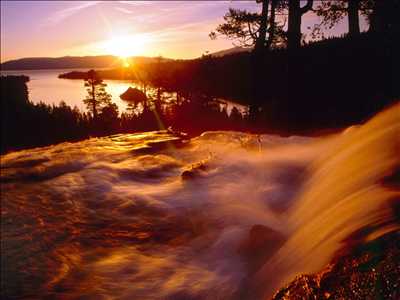Constitutional Control
In socialist countries, the function of the constitutional control (supervision), especially over the constitutionality of laws, have been entrusted to the Parliament itself, and its permanent body (presidium of the supreme representative body, the Council of State, etc.). Sometimes for this purpose by the Parliament created a special body, which included, along with members of several experts in constitutional law (such order existed before in Romania, in the former GDR).
Currently in socialist countries there are no special constitutional control bodies. It is believed that they should not be, because the presence of such bodies would violate the supremacy of Parliament. Institute of constitutional control is not in the UK, where he first formulated the concept of the rule of Parliament.
In some countries, some of the functions of constitutional performs a president who, in accordance with the basic law is the guarantor of the constitution (France, etc.). In practice, this is expressed, in particular, that the President since the enactment by Parliament and to its promulgation (the president's signature, certifying the law and comply with its binding) may apply to a specific body of constitutional review to the question of the constitutionality of the act.
Of particular importance is the judicial and quasi-judicial constitutional control. In most countries, the Anglo-Saxon legal systems (Australia, India, Canada, USA, etc.), this function is performed by the general courts, t is, those courts, whose main purpose is to examine the criminal and civil cases.
In some countries, these functions can be shared by all the courts, and a final decision is made by the highest court (Scandinavian countries, the United States, the Philippines, Japan), in others - only the highest courts (Ghana, Sri Lanka, Estonia), and in federations - also highest courts of the states (India, Canada, Malaysia), although in the latter case, the final decision is made by the supreme court of the state.
In some countries, the function of the constitutional control (supervision) entrusted to a special body - the constitutional court (Germany, Italy, etc.). Usually it is formed with the participation of the different branches of government (legislative - parliament, the executive - the president), and the judiciary (the Supreme Council of Magistrates or similar bodies of judicial guidance).
In its structure there is often not only professional judges with many years of judicial or law practice, but also law professors, politicians, former government officials. They usually are not appointed for life, and on one, but quite a long time (but not more than 12 years), at least - for two terms (Hungary, Syria) with rotation (partial renewal of the court).
In some countries, the functions of the Constitutional Court performs a specialized chamber of the constitutional guarantees of constitutional justice, acting alone or as part of the Supreme Court (Colombia, Peru, etc.).
In Kazakhstan, Morocco, Senegal, Tunisia, France created by the Constitutional Council (sometimes called constitutional courts and supreme constitutional court, although in reality it is the non-judicial bodies). The constitutional councils are formed, as a rule, without the participation of the judiciary. In some countries, they are appointed by the President, in France a third of the board appointed by the president and with the third - the chairmen of both chambers of parliament. In Ethiopia, a similar body called the Council of Constitutional Inquiry.
In some Muslim countries are constitutional and religious councils. Iran carries out a kind of constitutional authority - a supervisory board consisting of 12 members: six theologians appointed by the head of state (the highest spiritual entity), and six jurists proposed by Parliament. The Supervisory Board monitors compliance with the laws of the constitution rather than 1979, as the Qur'an. Under the pretext of the contradictions in the Quran, 1982, he dismissed the Agrarian Reform Law and the monopoly of foreign trade, in 1987 - the Labour Act. However, it is believed that the last word still belongs to the Parliament. To overcome the conflict between Parliament and the Supervisory Board established a special conciliation body.
In Pakistan, along with the Supreme Court, which exercises constitutional control, there are two bodies: the Islamic Council (considering the legal acts to the Qur'an) and the Sharia court (he hears claims of citizens, including those of non-compliance to Sharia acts on citizens).
In some countries, joined the two models of control by the general and special courts, if in the course of the judge finds (usually by the statements of the parties) on the possible unconstitutionality of the applicable law, it appeals to the Constitutional Court (Greece, Italy, Portugal).
In addition to these constitutional oversight bodies are usually assigned other functions: monitoring the accuracy of the referenda, the announcement of the results (France), consideration of conflicts over jurisdiction between the central and regional authorities (Spain), the consideration of substantive charges made against the President of the Parliament of the Republic ( Italy), the announcement is not constitutional political parties (Germany), the interpretation of the Constitution and the presentation of the conclusions of the highest authorities of the State for Constitutional Affairs, and in some countries, and the interpretation of ordinary laws (Albania, Egypt, Poland, Uzbekistan).
Apply to the Constitutional Control are the supreme bodies of state and officials, the subjects of the federation, autonomous entities, a group of MPs and senators, the courts, ombudsmen, citizens, if violated their constitutional rights (usually only after the proceedings in other courts or common). Finally, if you have exhausted all means of protecting constitutional rights in their country, citizens can appeal to international bodies and international courts. More details about the conditions of the treatment described in the chapter on the legal status of
beautiful pictures

